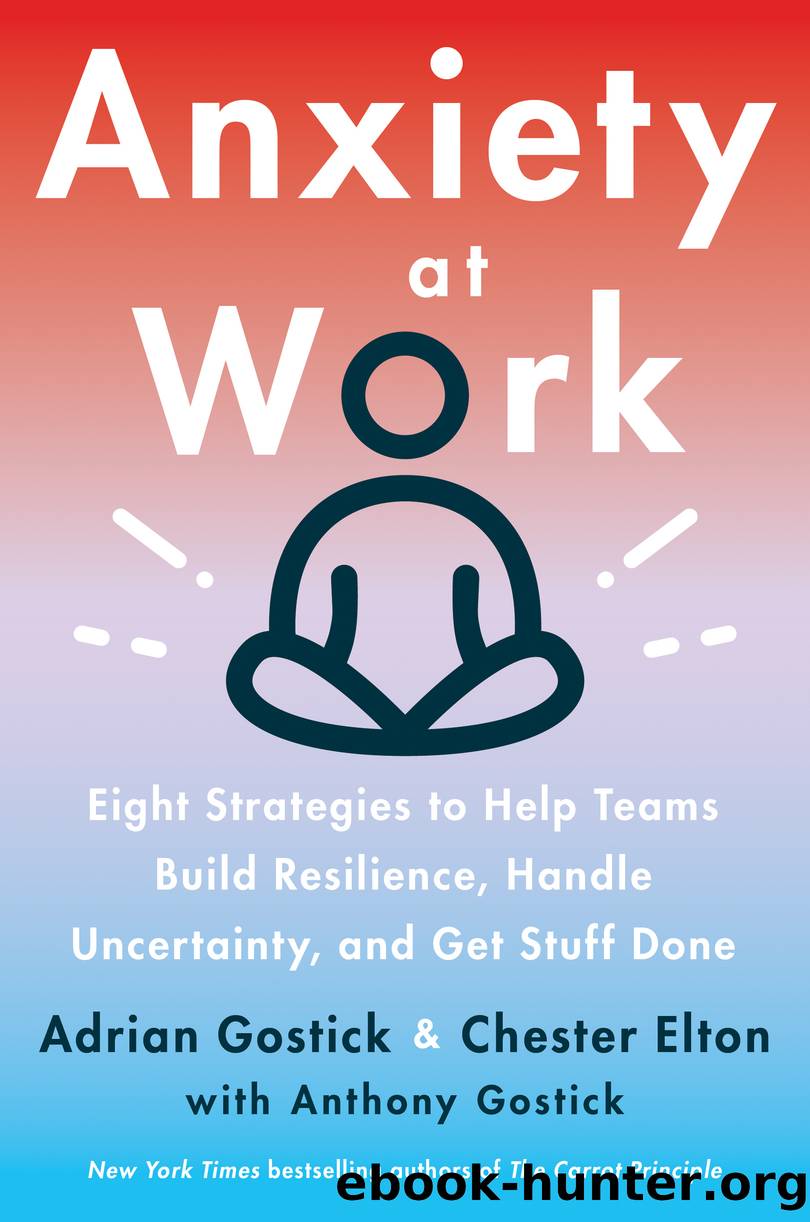Anxiety at Work by Adrian Gostick

Author:Adrian Gostick
Language: eng
Format: epub
Publisher: Harper Business
Published: 2021-03-11T00:00:00+00:00
How to Spot It
Before addressing what a manager can do to help perfectionist employees stay on track and meet their deadlines, itâs important to briefly share some insights about different types of perfectionism and how to spot them in a team.
The work of Paul Hewitt of the University of British Columbia and Gordon Flett of York University in Toronto has clarified that there are three basic types of perfectionism. When focused inward, toward the self, perfectionism leads individuals to hold unrealistic expectations of themselves and make punitive self-evaluations. This is self-oriented perfectionism. Alternatively, when people perceive demands for perfection coming from othersâbosses, spouses, friends, even strangersâleading them to believe they must be perfect to gain approval from the worldâtheyâre suffering from socially prescribed perfectionism. Finally, when perfectionistic expectations are directed toward others, people impose unrealistic standards on those around them. This is other-oriented perfectionism.
These are by no means mutually exclusive; people might be under the sway of several or all of them. But knowing about the differences is helpful in considering the best means of assisting employees. We can ask ourselves, Is an employee beating himself up, making critical comments about himself or his work? Does one worker seem to be thinking youâre expecting more of her than you are? Is another employee overly critical of the work done by colleagues or subordinates?
In terms of spotting that someone is a perfectionist, Dr. Alice Boyes, former clinical psychologist and author of The Anxiety Toolkit, advises that they might seek excessive guidance, seem loath to take any sort of risk, and treat every decision as if it were a matter of life and death. Itâs a good assumption to make that those displaying perfectionist tendencies have anxiety.
Harvard University research adds that perfectionists tend to become overly defensive when criticized. Healthy strivers, by contrast, tend to take criticism in stride as they push for superior results. And while strivers tend to bounce back from failures, perfectionists often become preoccupied with their missteps or the mistakes of others.
Okay, so whatâs to be done to help these employees? What follows are a series of methods weâve found are helping in leading those with perfectionist tendencies.
Download
This site does not store any files on its server. We only index and link to content provided by other sites. Please contact the content providers to delete copyright contents if any and email us, we'll remove relevant links or contents immediately.
Four Thousand Weeks by Oliver Burkeman(1836)
What Happened to You? by Oprah Winfrey(1759)
Karma by Sadhguru(1599)
This Changes Everything by Unknown(1498)
You Are a Badass: How to Stop Doubting Your Greatness and Start Living an Awesome Life by Jen Sincero(1165)
Don't Sweat the Small Stuff...and It's All Small Stuff by Richard Carlson(1105)
Infinite Circle by Bernie Glassman(1042)
How to Do the Work by Dr. Nicole LePera(998)
Let's Talk About Hard Things by Anna Sale(975)
Declutter Your Mind: A step by step guide to learn to control your thoughts, stop worrying, relieve anxiety and eliminate panic attacks and negative thinking by Mia Chandler(952)
The 4-Hour Workweek by Timothy Ferris(942)
Who Moved My Cheese? by Spencer Johnson(939)
Real Strength: Build Your Resilience and Bounce Back From Anything by Psychologies Magazine(932)
The Path of Greatness--The Game of Life and How to Play It and Other Essential Works by Florence Scovel Shinn(915)
Breakup Bootcamp by Amy Chan(890)
Be Your Best Self by Mike Bayer(884)
Curative Magic by Rachel Patterson(873)
The Book of Hope by Jane Goodall(859)
Advice for Working Moms (HBR Working Parents Series) by unknow(855)
